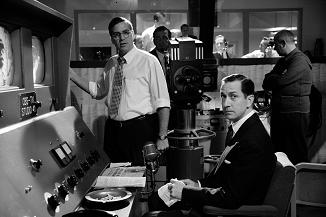“‘We run into this all the time in the archive business,’ said Vicky Risner, who is in charge of acquisitions for the music division of the Library of Congress. ‘People deny they’re going to die.'”” The NYT delves into the collapse of a will-less archive, in this case the prodigious collection on black dance amassed by the late Joe Nash.
Tag: History
Decline and Fall.
Also in Slate‘s History Week coverage, Mark Lewis surveys the recent literature on Teddy Roosevelt, with particular attention to TR’s post-1912 downward trajectory.
Unpopular chic.
“If a book is conceived with only historiography in mind — with academic disciplinary debates and research agendas dictating the focus and the form — it’s unlikely to succeed in the public realm. If it’s conceived without historiography in mind, it’s unlikely to succeed as scholarship. So, how do we develop what we might call a Goldilocks approach to historiography?” In a very intriguing two-part article for Slate, David Greenberg of Rutgers University makes the case for historians breaking out of the Ivory Tower.
My friends and colleagues here have heard me rant about this on many opportunities — For all the talk of transnationalism and blurring borders in the field right now, the border between academia and popular history remains rigorously guarded by historians who too often equate accessibility with poor scholarship and second-rate thinking. On many occasions, we’ve been told by visiting scholars — including some very big names — that, for better or worse, we’re fated to do “history-professor history” that will have “no effect” on how Americans see their past.
In short, I find this line of thinking very disquieting. Frankly, writing American history tomes that only a rarefied community of scholars will “get” seems to me a rather sad way to spend a life in the discipline. Whatsmore, it’s no accident that right-wing interpretations of the past, be they neo-con or free-market fundamentalism, for example, tend to gain a wider currency in today’s political climate than left-wing ones do. It’s partly because academics on the right seem to have less qualm about popularizing their ideas for a mass audience (and they’ve got more institutions to disseminate them, but that’s another story.)
I find something profoundly irritating about scholars who claim that “ordinary people” will never understand their ideas, and then go on to complain about the nation’s right-wing drift. While it may be hubris to think that any one scholar’s work will make all that much of a difference, it’s still a worthier goal, to my mind, than composing a work of great theoretical insight that’s completely inscrutable to all but those academic elites similarly ordained in the historical arts.
In the Key of X.
“‘I think people will find something in the objects to provoke new levels of interest and new levels of scholarship,’ Howard Dodson, chief of the Schomburg, said in an interview. ‘We’ve consciously tried to stay away from putting a heavy interpretative line on it and to let Malcolm X speak for himself.’” The NYT previews the new Malcolm X exhibit, opening at the Schomburg Center next Thursday.
Not Like Ike.
And here I thought the military-industrial complex speech was prescient…
(Quote and links seen at Medley and birddogged by David Sirota):
“Should any political party attempt to abolish social security, unemployment insurance, and eliminate labor laws and farm programs, you would not hear of that party again in our political history. There is a tiny splinter group, of course, that believes you can do these things. Among them are…a few other Texas oil millionaires, and an occasional politician or business man from other areas. Their number is negligible and they are stupid.” – Dwight D. Eisenhower, 11/8/54
My Back Pages.
If you’ve arrived from Ralph Luker‘s kind article in this month’s AHA Perspectives, welcome to GitM. If you click and/or scroll around enough, you should be able to find something that catches your fancy around here. And, if you’re looking for more quality weblogs by historians (and aspiring historians), check out Cliopatria’s comprehensive History Blogroll.
Don’t Fault Yalta.
“Bush stopped short of accusing Franklin D. Roosevelt and Winston Churchill of outright perfidy, but his words recalled those of hardcore FDR- and Truman-haters circa 1945…Bush’s cavalier invocations of history for political purposes are not surprising. But for an American president to dredge up ugly old canards about Yalta stretches the boundaries of decency and should draw reprimands (and not only from Arthur M. Schlesinger Jr.)” Slate‘s David Greenberg outlines Dubya’s recent mischaracterization of the Yalta conference. Well, Dubya doesn’t even seem to understand diplomacy now, so why would he understand it then?
Empires and Shadows.
A couple of NYT book reviews of local interest: Columbia’s Eric Foner peruses the first transcribed volume of the LBJ tapes, Johann Hari reviews Irresistible Empire by Columbia historian Victoria de Grazia, and college acquaintance Nell Freudenberger takes a gander at Stewart O’Nan’s The Good Wife.
See it Now.
 The first pic from Goodnight & Good Luck, George Clooney’s forthcoming film about Edward Murrow’s televised unmasking of Joe McCarthy, is now online. The cast includes Clooney (Fred Friendly), David Strathairn (Murrow), Frank Langella (Bill Paley), Patricia Clarkson, Jeff Daniels, and Robert Downey, Jr.
The first pic from Goodnight & Good Luck, George Clooney’s forthcoming film about Edward Murrow’s televised unmasking of Joe McCarthy, is now online. The cast includes Clooney (Fred Friendly), David Strathairn (Murrow), Frank Langella (Bill Paley), Patricia Clarkson, Jeff Daniels, and Robert Downey, Jr.
Amadeus Chic.
Fans of period pieces and the ultraviolence take note: Today brings our first looks at Ed Harris as Ludwig Van in Copying Beethoven and Kirsten Dunst as Marie Antoinette in Sofia Coppola’s forthcoming biopic of the Austrian princess.
